Elephants Don’t Forget—And They Don’t Stop Feeling Either
- QuynhGiang
- July 21, 2025
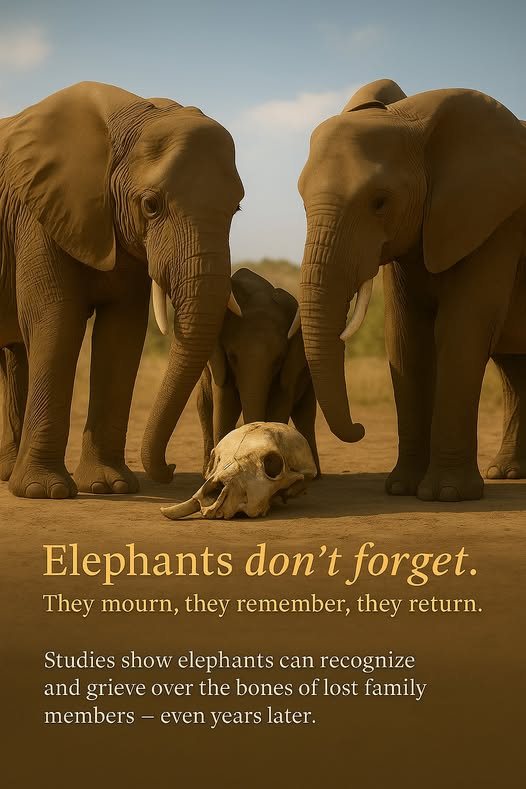
Elephants Don’t Forget—And They Don’t Stop Feeling Either
In the heart of the wild, where life and death walk side by side, elephants reveal something quietly profound: they mourn their dead.
When an elephant comes across the bones of a fallen one, it doesn’t just pass by. It pauses. Gently, it extends its trunk to explore the skull, the tusks—sometimes holding them, sometimes resting its head in silence. These aren’t random motions. They’re acts of remembrance.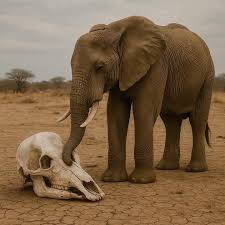
Scientific studies have shown that elephants can recognize the remains of their kin, even years after their passing. They don’t simply react to scent or shape—they respond with what appears to be familiarity, emotion, and care. They revisit these places. Not out of instinct. Out of memory.
It’s grief, in its rawest and most natural form.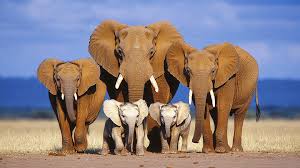
This behavior isn’t unique to one herd or one region—it has been witnessed across elephant populations in Africa and Asia. They linger near the bones. They slow their pace. Sometimes they stay for hours.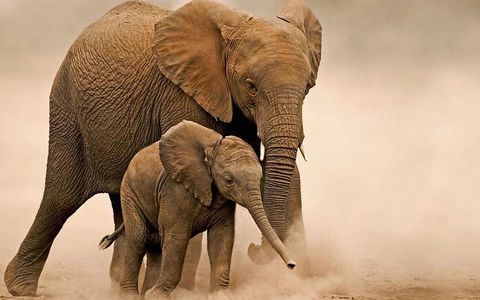
These are the signs of emotional intelligence far deeper than many once believed. Elephants form deep social bonds. They celebrate births. They protect each other fiercely. And when they lose someone, they feel it.
To watch an elephant mourn is to witness something remarkably human—grief, love, and loyalty stretching beyond the boundaries of life.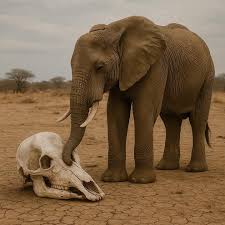
Perhaps it’s time we stop seeing them as animals beneath us, and instead as beings who mirror us—in ways we are only beginning to understand.











